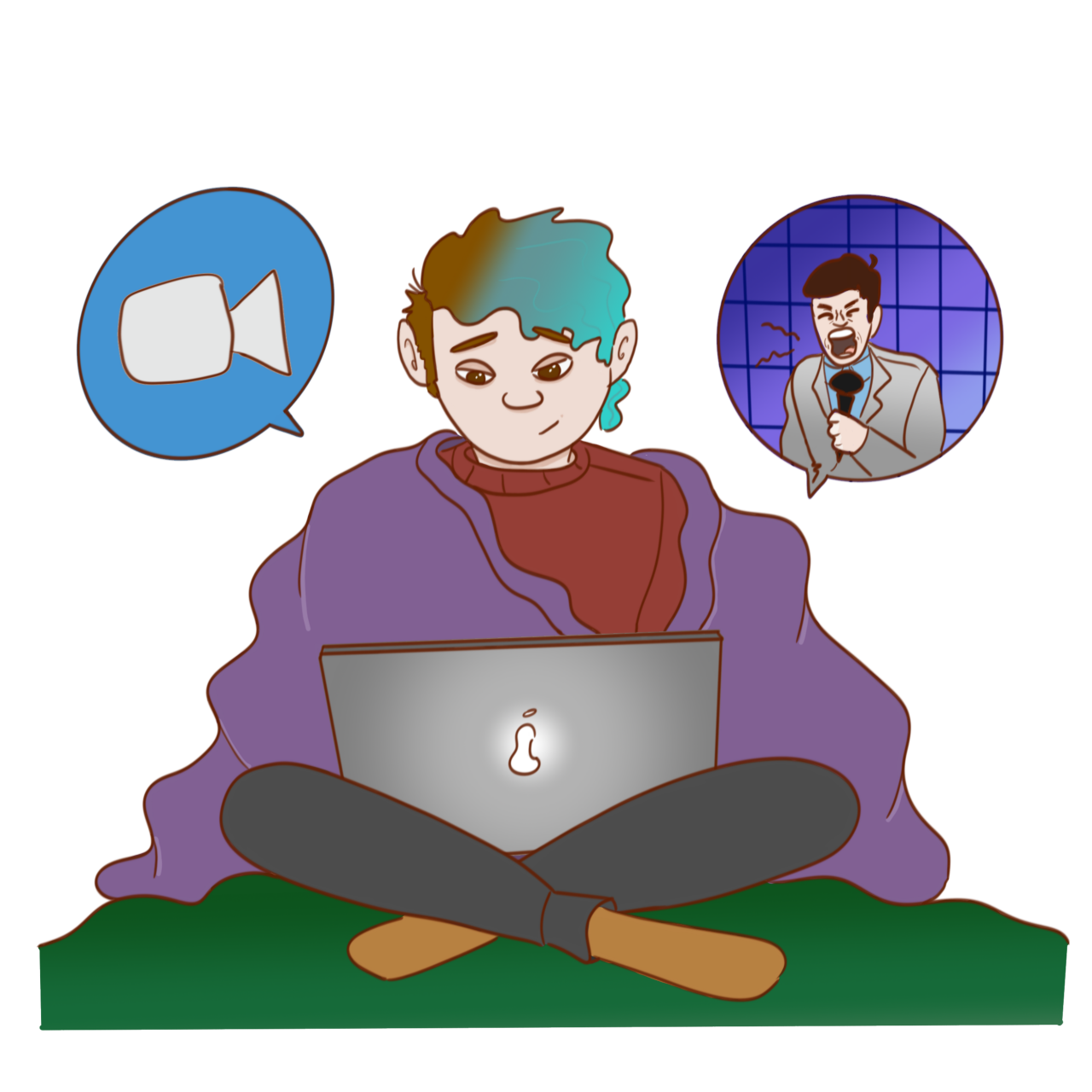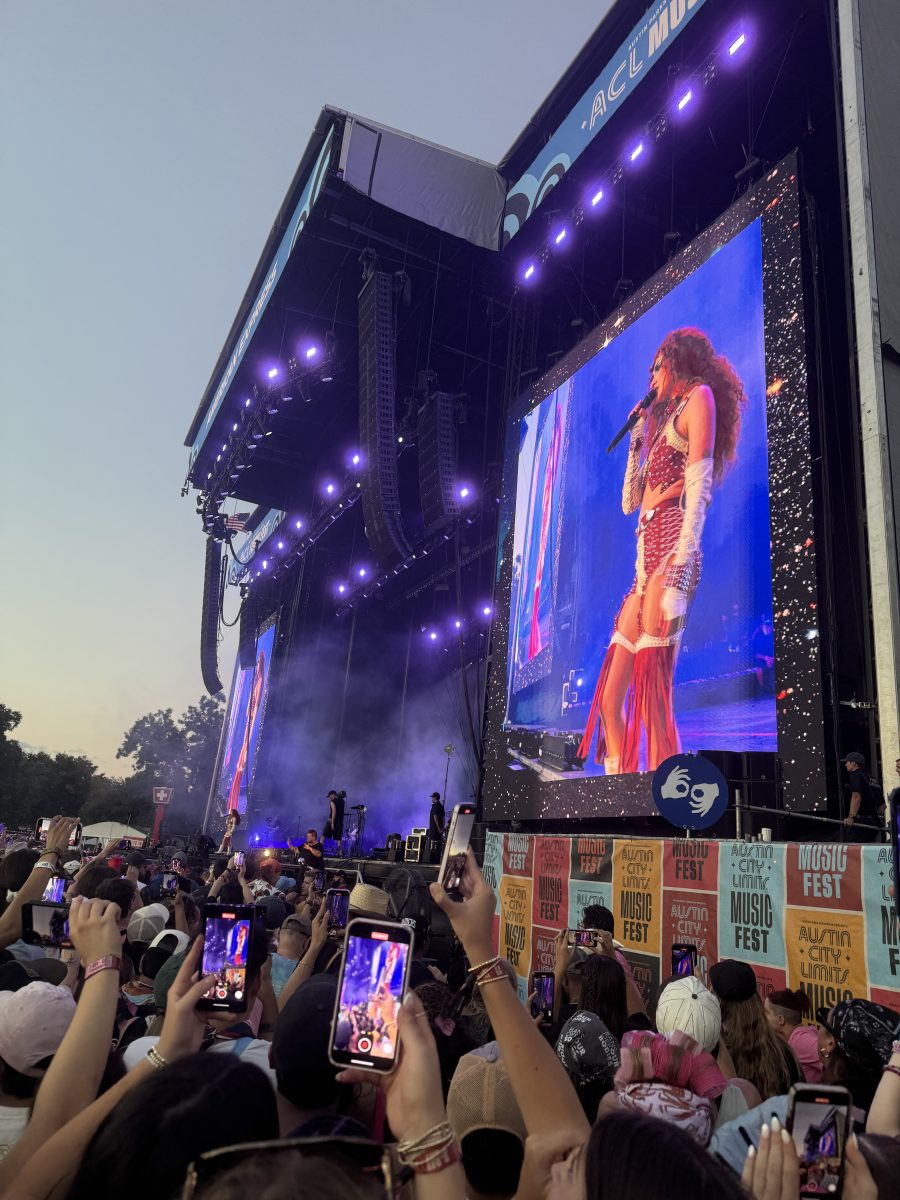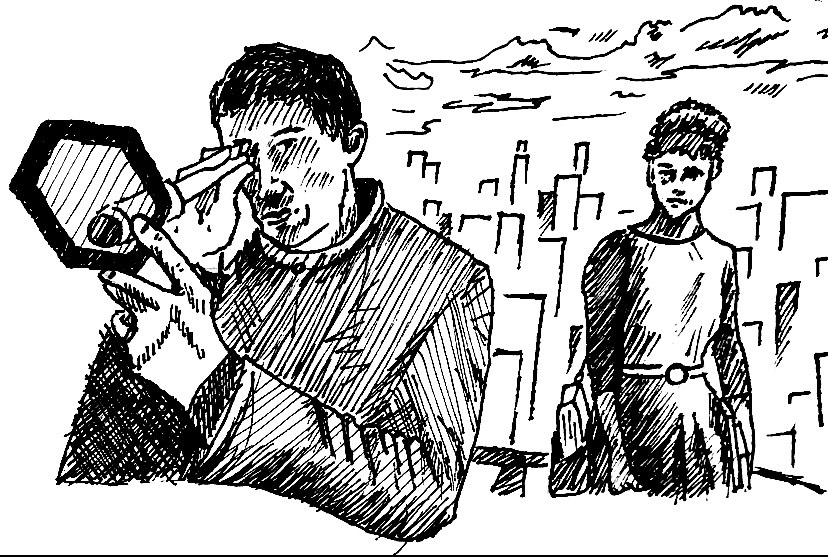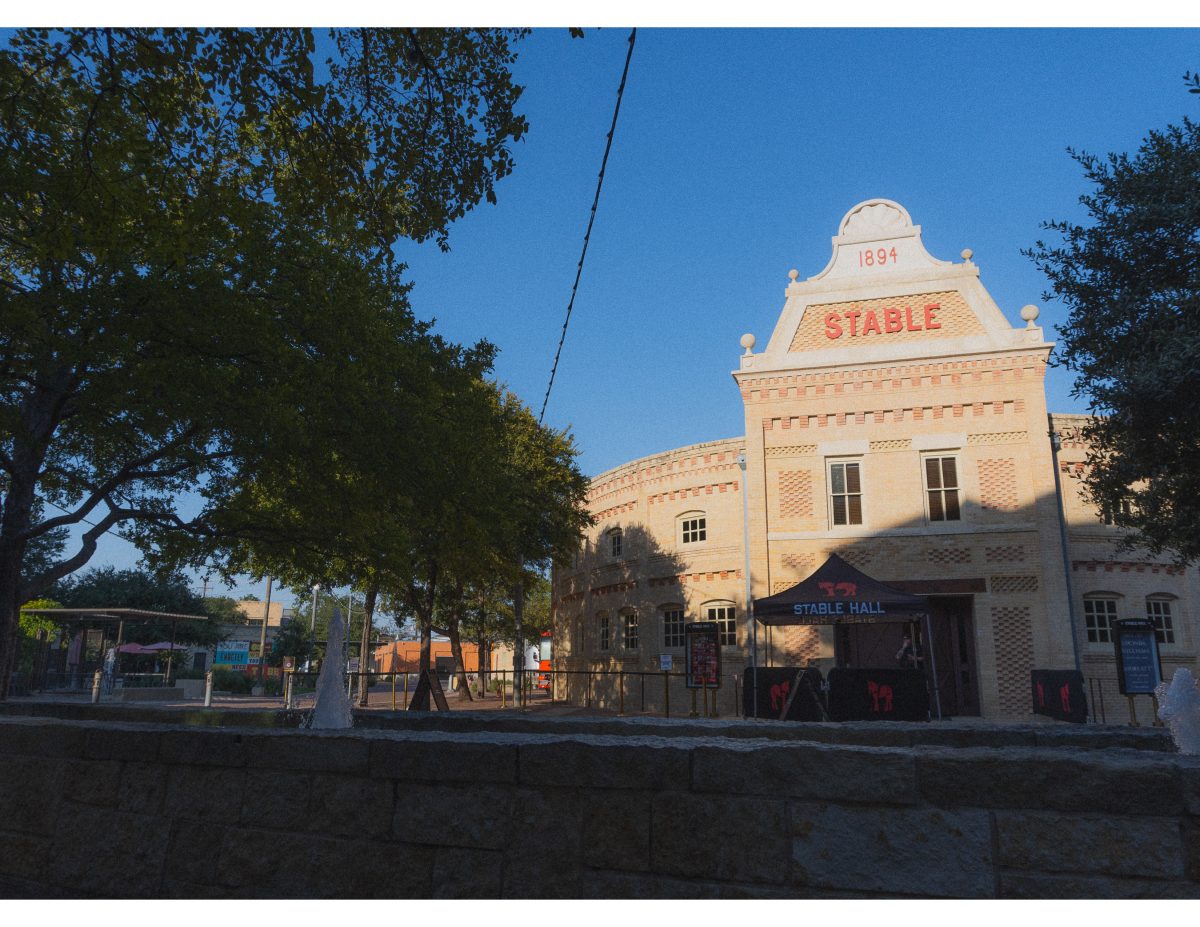illustration by Gracen Hoyle
Everybody is having those days right now, and for the foreseeable future, we still have many of those days to come. Despite how cringe-worthy that opening might have been, it brought a genuine smile to my face to write it out and hopefully you too. Having a sense of humor is about all we can do in times like these. I mean, hell, almost all other forms of distraction will still be either canceled or postponed for at least another month or two, maybe into the new year.
Comedy has always been a go-to coping mechanism for many—and for a good reason. If you’re someone who laughs or makes jokes when you’re going through something, you already know what I’m talking about. The very essence of comedy is about taking the wrong parts of life and finding the silver lining that doesn’t occur to us right off the bat, so much of good comedy is about pain, mistakes and honest reflection of the two. It’s not about blocking out the pain or ignoring your feelings—it’s quite the opposite. Good comedy forces us to embrace the pain and glean the understanding that allows us to grow from it or not. There’s so much good material in stunted growth.
Good comedy is also hearty and soulful. The pleasure you feel from it extends far beyond the slight involuntary chuckle you make when understanding a joke. Good comedy induces a deeper, more cathartic pleasure in your chest and throughout your body, similar to that evoked by listening to great jazz or blues compositions. It’s the sensation of healing and understanding that makes a work of art meaningful. Whenever I try to compile a list of my all-time favorite stand-ups, I find it’s littered with people who make me feel less alone in this world more than people who purely make me laugh—although there’s usually a ton of overlap. Our heartiest laughs don’t usually come from comedy that thrives on easily digestible concepts that don’t move or challenge us. They come from the well of deep pain and worldly curiosity that we don’t often express in our daily interactions.
With the classroom robbed of the usual mechanisms that promote collective laughter, we’ve been forced to rewrite the language of humor in the classroom—with mixed results. You can’t hear people laugh, but can you see them laugh? Yes, but only if their video is on. Does anybody in the virtual classroom do that? Nope, virtually nobody. How impersonal, but that’s understandable for privacy reasons, so can students just use the chat function to say “LOL” then? Yes, they can, and they do, but virtually nothing is more annoying than that. Luckily, if you think like me, you can at least be happy that they aren’t “verbal texting” by literally saying “LOL” out loud, and at least I only have to “virtually meet” these people. Nonetheless, virtually nothing can adequately replace the smattering of chuckles that moves across the classroom like an ocean wave whenever the professor makes a clever and topical joke. Speaking of which, I can’t even begin to imagine how awkward and bizarre the virtual classroom must be for the world’s teachers and professors. For starters, if virtually the entire virtual class has deactivated their audio and video, then the act of teaching is reduced to nothing more than lecturing into a blank, lifeless void. I’m sure that before this pandemic, that metaphor has inspired decades of incomplete screenplays from teachers across the globe. Like the students, teachers can’t hear or participate in collective laughter from any amusing or unexpected situations that arise in the virtual meeting space, and to make matters worse, they can’t tell whether or not any of their jokes are actually landing.
If there’s one positive thing about the conditions we’re living in, it’s that they’re forcing us to reconsider what’s important and necessary and what’s not. I myself have started to wonder why I spent so much time caring about things that are truly harmless and insignificant in the grand scheme of life. I’ve also started to think about things I should have been focusing on more this entire time—like my future and my loved ones. When the world kicks back into gear, it’s truly not worth having an uptight demeanor about everyone and everything.
There’s really nothing all that funny about a global pandemic threatening the lives and livelihoods of millions around the globe, but it is funny to think that someone did wash their hands with cheddar cheese in the early days of the pandemic. I guess what I’m trying to say here is this: try to have a sense of humor about things. Laugh more, write more, talk to the people around you—from a safe distance of course. This coronavirus panic won’t go on forever. Unfortunately, the trials and tribulations of life will, and the least we can all do is have a laugh about them.









